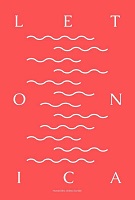Stāstījuma jēdziens un tā adepti latviešu literatūrzinātnē
The Concept of “Narrative” and its Adepts in Latvian Literary Scholarship
Author(s): Jānis OzoliņšSubject(s): Epistemology, Recent History (1900 till today), Latvian Literature, Theory of Literature
Published by: Latvijas Universitātes Literatūras, folkloras un mākslas institūts
Keywords: narrative; message; Broņislavs Tabūns; Harijs Hiršs; narratology; Latvian literary scholarship;
Summary/Abstract: This article is dedicated to the concept of narrative, exploring the origins of the concept, its character, and use in Latvian literary history and nowadays. The concept of narrative has telltale signs of an epistemological crisis: the meaning of concepts (including narrative) is regularly questioned and expanded. Independent of whether we view a narrative, at the level of microanalysis, as a chain of events (actions) linked by causality, or at the level of macroanalysis, as an ideological concept or an ingredient of cognitive processes, narrative is linguistic in origins and still retains that function. The sources of narratology in Latvian literary scholarship are found in the publications on the theory of fiction by Harijs Hiršs and Broņislavs Tabūns as early as the 1980s. The views of both theoreticians tend to impact the use of the words “vēstījums” (message) and “stāstījums” (narrative) in Latvian: Tabūns used “vēstījums”, whereas Hiršs has used both “vēstījums” and “stāstījums”, originally as synonyms, and later introducing a hierarchical relationship between the two. The different approaches have lead to confusion among literary scholars—to this day, both concepts are sometimes used as synonyms in scholarly literature. The etymology of words and context of their use indicate that “stāstījums” is a more precise translation of the concept of “narrative” than “vēstījums”, for it satisfies the requirements of both classical and postclassical narratology.
Journal: Letonica
- Issue Year: 2020
- Issue No: 42
- Page Range: 6-19
- Page Count: 14
- Language: Latvian

